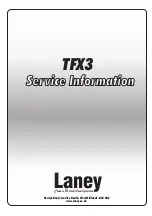
8.16
CANopen interface (X6)
The interface for connection to the CAN bus (default 500 kBaud). The integrated profile is based on
the communication profile CANopen DS301 and the drive profile DSP402. The following functions
are available in connection with the integrated position controller:
Jogging with variable speed, reference traverse (zeroing), start motion task, start direct task, digital
setpoint provision, data transmission functions and many others.
Detailed information can be found in the CANopen manual. The interface is electrically isolated by
optocouplers, and is at the same potential as the RS232 interface. The analog setpoint inputs can
still be used.
With the optional expansion card -2CAN- the two interfaces for RS232 and CAN, which otherwise
use the same connector X6, are separated onto two connectors (
ð
p. 110).
AGND and DGND (connector X3) must be joined together !
CAN bus cable
To meet ISO 11898 you should use a bus cable with a characteristic impedance of 120
W
. The
maximum usable cable length for reliable communication decreases with increasing transmission
speed. As a guide, you can use the following values which we have measured, but they are not to
be taken as assured limits:
Cable data:
Characteristic impedance
100-120
W
Cable capacity
max. 60 nF/km
Lead resistance (loop)
159.8
W
/km
Cable length, depending on the transmission rate
Transmission rate / kbaud
max. cable length / m
1000
20
500
70
250
115
Lower cable capacity (max. 30 nF/km) and lower lead resistance
(loop, 115
W
/km) make it possible to achieve greater distances.
(Characteristic impedance 150 ± 5
W Þ
terminating resistor 150 ± 5
W
).
For EMC reasons, the SubD connector housing must fulfil the following conditions:
—
metal or metallized housing
—
provision for cable shielding connection in housing, large-area connection
SERVOSTAR
®
640/670 Instructions Manual
69
Kollmorgen
12/2010
Electrical Installation
SERVOSTAR 640/670















































